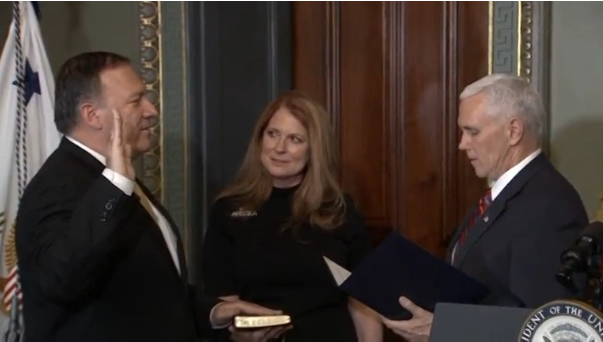
WASHINGTON, United States (Reuters) — Representative Mike Pompeo is sworn in as President Donald Trump’s CIA director on Monday (January 23, after a delay tied to some lawmakers’ worries he might expand surveillance or allow the use of certain interrogation techniques widely considered torture.
Sixty-six senators backed Pompeo and 32 voted against. All the opposition was from Democrats, except for Senator Rand Paul, a leading Republican advocate for strict control of surveillance. Shortly afterward.
Some senators felt Pompeo, 53, had not pledged strongly enough to allow only the use of interrogation techniques included in the Army Field Manual, as required by law, rather than return to waterboarding and other “enhanced interrogation techniques,” or EITs, used by the CIA in the years after the Sept. 11 attacks.
Trump’s predecessor, Barack Obama, signed an executive order in 2009 banning waterboarding – a form of simulated drowning – and other EITs, which are denounced by many lawmakers and rights groups as torture.
In response to written questions from the Senate Intelligence Committee, Pompeo said he was open to changing policy under certain circumstances. “I will consult with experts… on whether the Army Field Manual uniform application is an impediment to gathering vital intelligence to protect the country.” Pompeo wrote.
Trump promised during his presidential campaign to bring back waterboarding and “a hell of a lot worse.”
Democratic Senator Ron Wyden spoke for more than an hour in the Senate in opposition to Pompeo’s nomination, saying he had provided inconsistent answers on surveillance and interrogation tactics, making it impossible to know how he would implement policy at the CIA.
He accused Pompeo of having proposed “the most sweeping new surveillance program I have ever heard of.”
Most Republicans called Pompeo, a member of the House Intelligence Committee, an excellent choice







